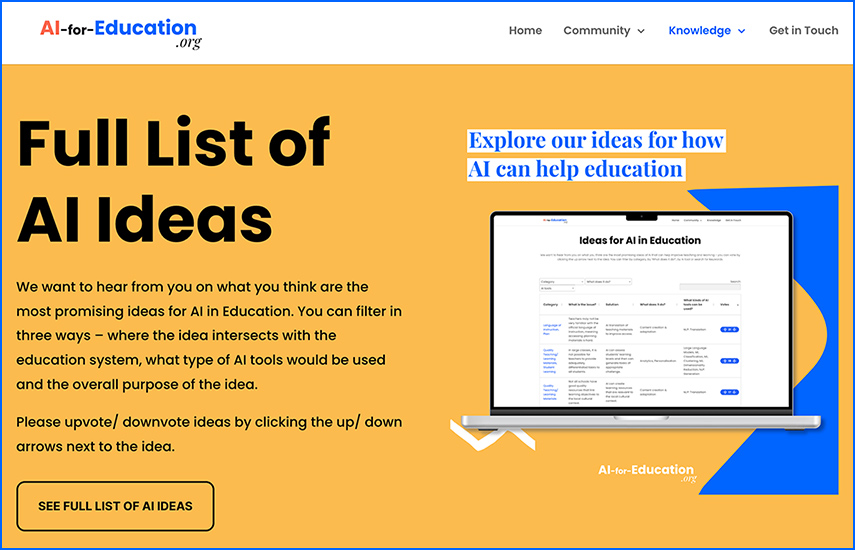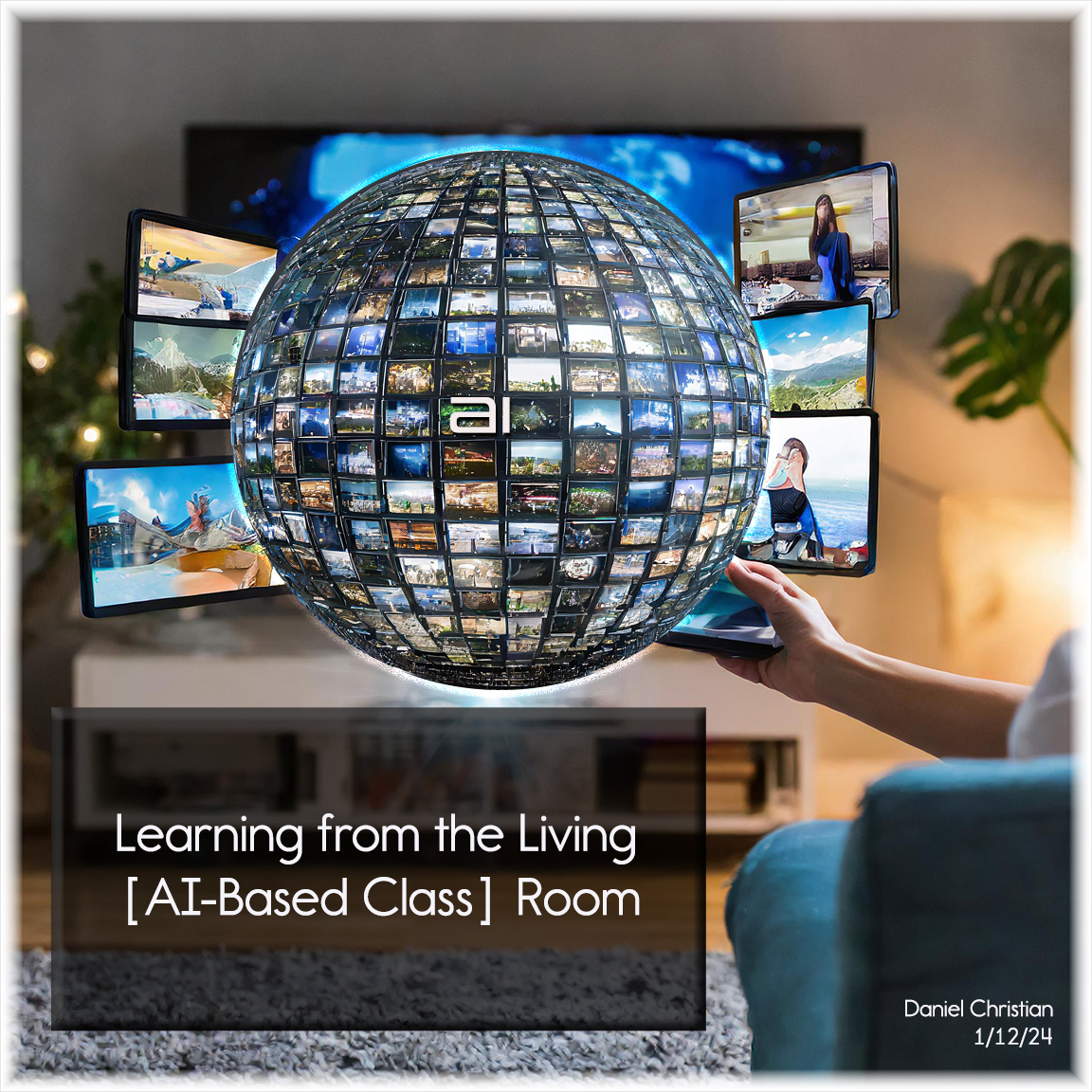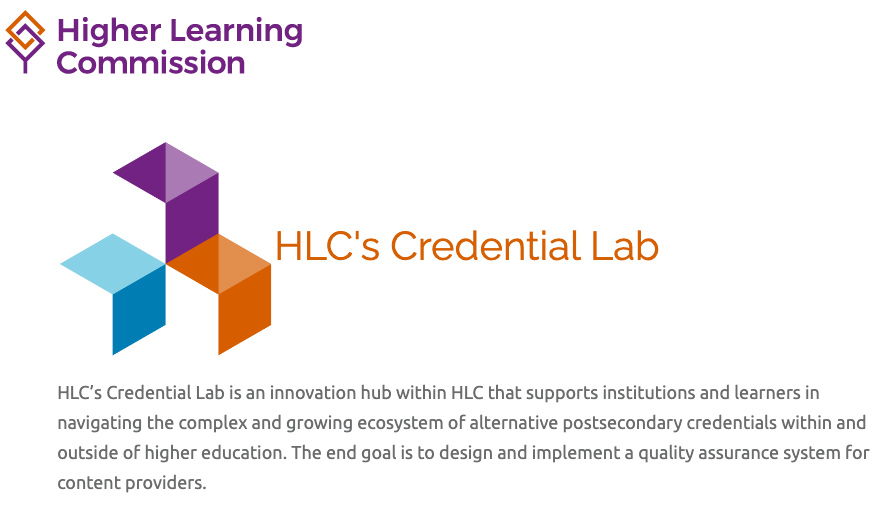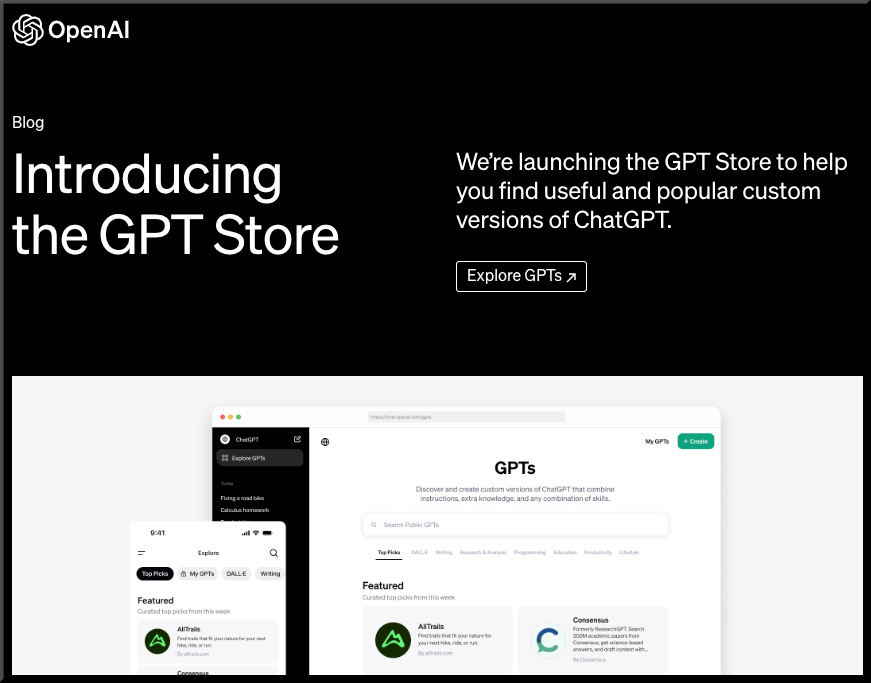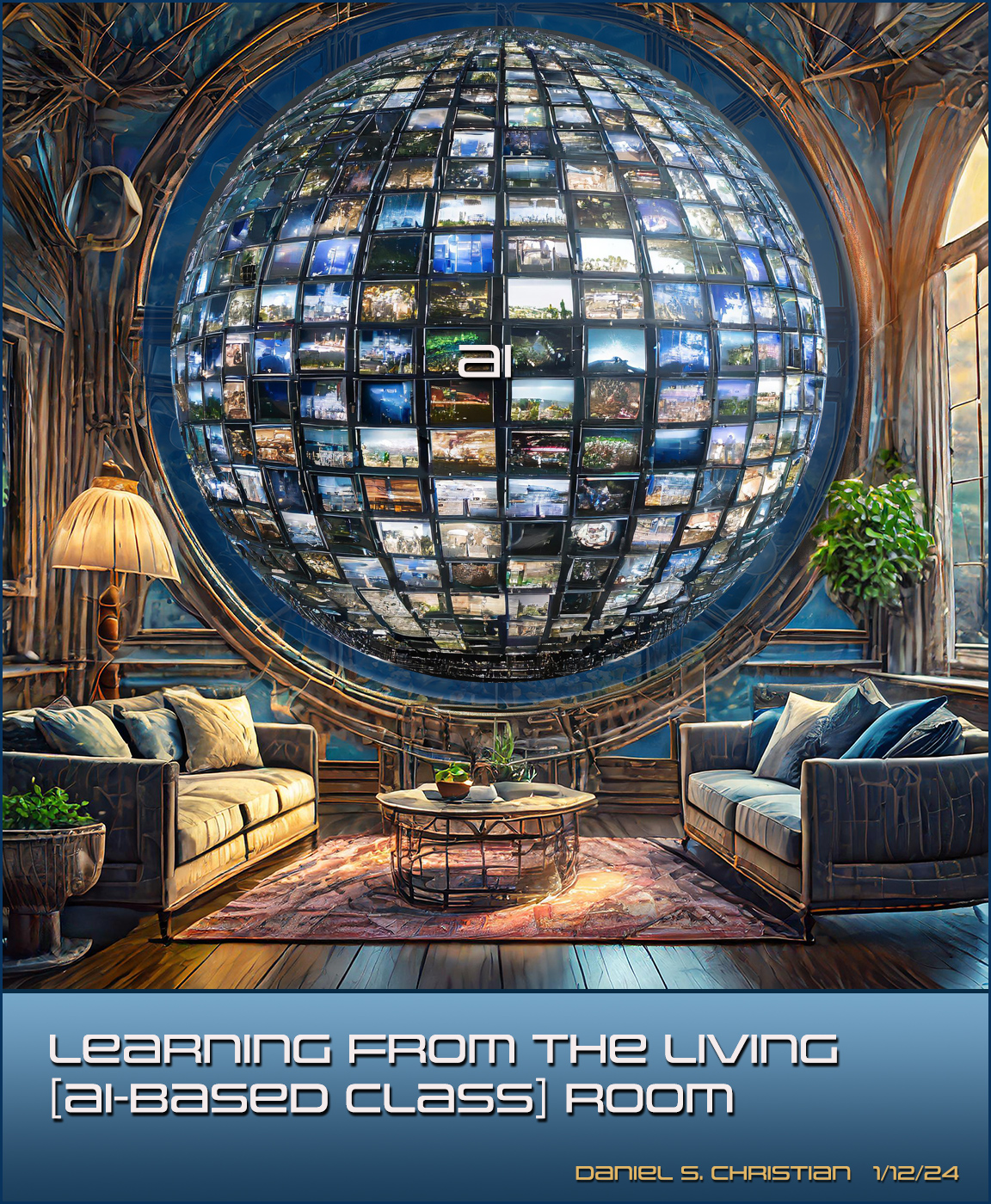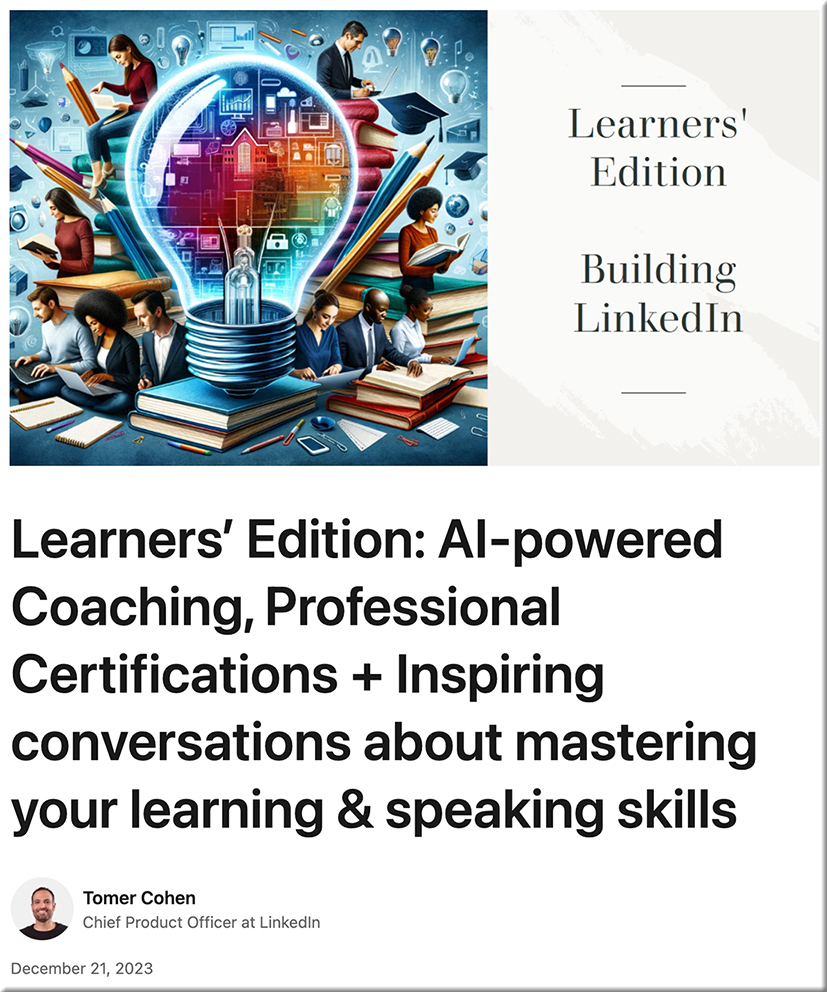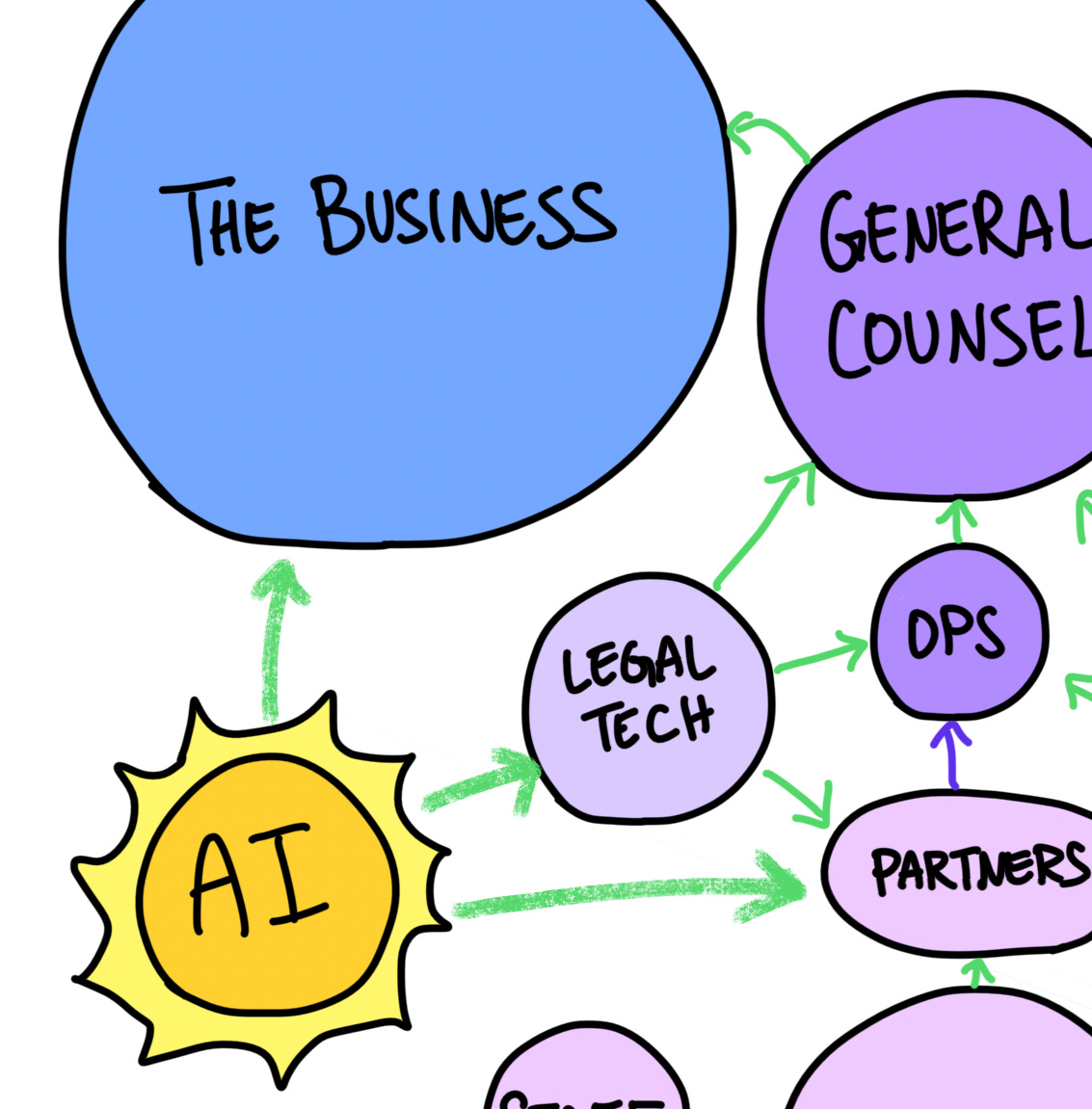OpenAI announces first partnership with a university — from cnbc.com by Hayden Field
Key Points:
- OpenAI on Thursday announced its first partnership with a higher education institution.
- Starting in February, Arizona State University will have full access to ChatGPT Enterprise and plans to use it for coursework, tutoring, research and more.
- The partnership has been in the works for at least six months.
- ASU plans to build a personalized AI tutor for students, allow students to create AI avatars for study help and broaden the university’s prompt engineering course.
A new collaboration with OpenAI charts the future of AI in higher education — from news.asu.edu
The collaboration between ASU and OpenAI brings the advanced capabilities of ChatGPT Enterprise into higher education, setting a new precedent for how universities enhance learning, creativity and student outcomes.
“ASU recognizes that augmented and artificial intelligence systems are here to stay, and we are optimistic about their ability to become incredible tools that help students to learn, learn more quickly and understand subjects more thoroughly,” ASU President Michael M. Crow said. “Our collaboration with OpenAI reflects our philosophy and our commitment to participating directly to the responsible evolution of AI learning technologies.”
AI <> Academia — from drphilippahardman.substack.com by Dr. Philippa Hardman
What might emerge from ASU’s pioneering partnership with OpenAI?
Phil’s Wish List #2: Smart Curriculum Development
ChatGPT assists in creating and updating course curricula, based on both student data and emerging domain and pedagogical research on the topic.
Output: using AI it will be possible to review course content and make data-informed automate recommendations based on latest pedagogical and domain-specific research
Potential Impact: increased dynamism and relevance in course content and reduced administrative lift for academics.
A full list of AI ideas from AI-for-Education.org
You can filter by category, by ‘What does it do?’, by AI tool or search for keywords.
Navigating the new normal: Adapting in the age of AI and hybrid work models — from chieflearningofficer.com by Dr. Kylie Ensrud
Unlike traditional leadership, adaptable leadership is not bound by rigid rules and protocols. Instead, it thrives on flexibility. Adaptable leaders are willing to experiment, make course corrections, and pivot when necessary. Adaptable leadership is about flexibility, resilience and a willingness to embrace change. It embodies several key principles that redefine the role of leaders in organizations:
- Embracing uncertainty
Adaptable leaders understand that uncertainty is the new norm. They do not shy away from ambiguity but instead, see it as an opportunity for growth and innovation. They encourage a culture of experimentation and learning from failure.
- Empowering teams
Instead of dictating every move, adaptable leaders empower their teams to take ownership of their work. They foster an environment of trust and collaboration, enabling individuals to contribute their unique perspectives and skills.
- Continuous learning
Adaptable leaders are lifelong learners. They are constantly seeking new knowledge, stay informed about industry trends and encourage their teams to do the same. They understand that knowledge is a dynamic asset that must be constantly updated.
Major AI in Education Related Developments this week — from stefanbauschard.substack.com by Stefan Bauschard
ASU integrates with ChatGPT, K-12 AI integrations, Agents & the Rabbit, Uruguay, Meta and AGI, Rethinking curriculum
“The greatest risk is leaving school curriculum unchanged when the entire world is changing.”
Hadi Partovi, founder Code.org, Angel investor in Facebook, DropBox, AirBnb, Uber
Tutorbots in college. On a more limited scale, Georgia State University, Morgan State University, and the University of Central Florida are piloting a project using chatbots to support students in foundational math and English courses.
Pioneering AI-Driven Instructional Design in Small College Settings — from campustechnology.com by Gopu Kiron
For institutions that lack the budget or staff expertise to utilize instructional design principles in online course development, generative AI may offer a way forward.
Unfortunately, smaller colleges — arguably the institutions whose students are likely to benefit the most from ID enhancements — frequently find themselves excluded from authentically engaging in the ID arena due to tight budgets, limited faculty online course design expertise, and the lack of ID-specific staff roles. Despite this, recent developments in generative AI may offer these institutions a low-cost, tactical avenue to compete with more established players.
Google’s new AI solves math olympiad problems — from bensbites.beehiiv.com
There’s a new AI from Google DeepMind called AlphaGeometry that totally nails solving super hard geometry problems. We’re talking problems so tough only math geniuses who compete in the International Mathematical Olympiad can figure them out.









